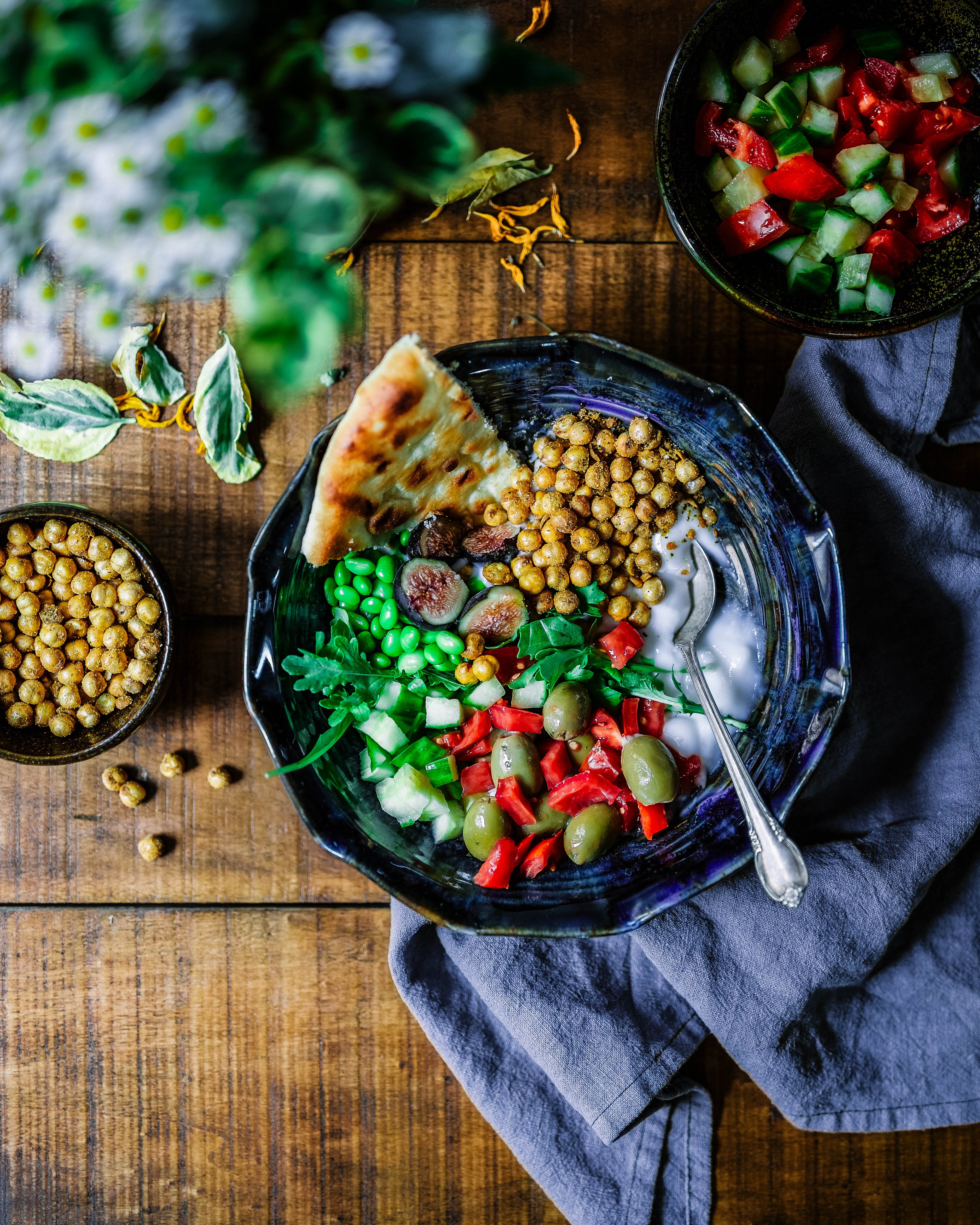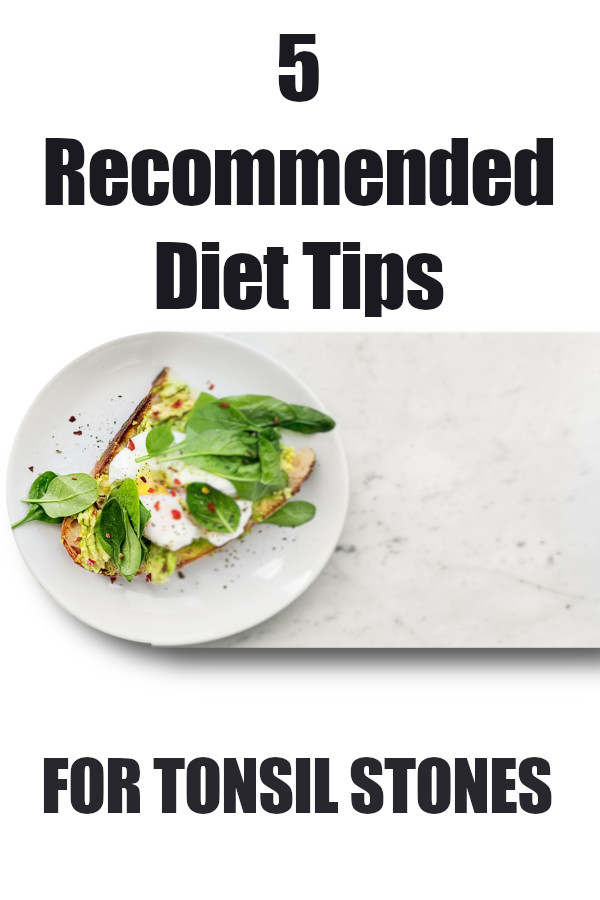Tonsil stones are an incredibly embarrassing ailment that plagues all of us who are lucky enough to have kept that part of our immune system.
For those of you who are still single, a big whiff of the putrid pearl could send your significant other heading for the hills – so it’s important to keep them under control, especially in social situations.
The first line of defense is your diet, and that’s what this article is about.
Do certain foods cause tonsil stones? Foods that are high in nitrates, starches and oxalates promote rapid tonsil stone formation. A significant reduction can be achieved by eliminating such foods from your diet, as well as keeping hydrated and introducing probiotics to reduce the smell.
But that’s not what causes the oh-so-juicy smell that we all love. It’s anaerobic bacteria.
To combat this, what we want to do is create an environment in our mouth that is very difficult for that “bad” bacteria to live while also reducing any chance they develop in the first place.
Here’s what you need to know…
Quick Summary
Anaerobic bacteria require a lack of oxygen to survive and thrive, which is exactly the kind of environment found within the crypts of your tonsils.
A diet lacking in probiotics and the right kind of fluids will dry out your throat, and stones will develop in the folds where matter/debris gets stuck.
Certain foods that are good for you, like spinach and beets, are also high in oxalates and promote tonsil stones.
Increase Hydration To Keep Your Tonsils Lubricated
Are you getting in your 8 glasses of water per day? How big of a glass are you using? Does that pot of coffee count?
According to the National Health and Nutrition Examination (2009-2012), apparently most Americans are, in fact, getting plenty of fluids.
So how does hydration play a role in tonsil stone formation?
In normal circumstances, having the recommended amount of water each day will keep your mouth moist and your tonsils lubricated. When everything is working as intended, the saliva in your mouth will be able to break things down easily and efficiently.
Also, with a lubricated mouth your food will not be caught within the crypts of your tonsils so easily and the “bad” bacteria cannot survive as well. The health condition Xerostomia (Dry Mouth Syndrome) is linked to the occurrence of tonsil stones.
But you’re not like most Americans, are you?
Does Coffee Cause Tonsil Stones?
If you’re anything like me, you probably drink a lot of coffee.
While coffee does not directly cause tonsil stones, the caffeine that we intake causes a dehydrating effect on your body and will leave your mouth dry.
Dry mouth = your tonsils turn into catcher mitts and will trap food/particles within the crypts much more easily.
This is because your saliva contains necessary enzymes to break food particles down and destroy bacteria, and it also provides lubricant.
So when your mouth is dry, it’s very easy for particles to get stuck in the crypts of your tonsils where anaerobic bacteria likes to grow.
Does Smoking Cause Tonsil Stones?
We all know that smoking is bad for you, but what if I told you that it can also contribute to an increase in throat pearls?
The reason is very similar to why caffeine can cause tonsil stones. Nicotine within cigarettes dry’s out the mouth which will increase your chance of getting smelly tonsil stones.
And if you vape? The main ingredient (Propylene Glycol) may have anti-bacterial properties, but the nicotine that you’re using the vape for is just like that coffee.
In fact, nicotine has been said to dehydrate your body so much that it can cause headaches and dizziness. And I don’t know about you, but after a pot of coffee I spend most of my time in the bathroom.
Does Alcohol Cause Tonsil Stones?
As much as I enjoy bursting bubbles, I am a bit disappointed that alcohol consumption can also contribute to an increase chance of tonsil stone formation for the same reason listed above.
In my younger days I recall waking up after a night of partying with a super dry mouth and popping out an everlasting gobstopper of a stone that was incredibly disgusting – so be careful when consuming alcohol.
However, I have seen a significant reduction by switching to a hard seltzer drink because it helps to stay hydrated. Stronger drinks, like wine and liquor, will dehydrate the mouth and body much more rapidly.
The moral of the story is: the more saliva you produce, the less likely you’ll develop tonsil stones because your mouth remains moist so the food you eat won’t get stuck in their folds.
So if you’re counting that pot of coffee in the morning as your water intake, or if you smoke, vape, or consume alcohol you’re going to need to significantly increase your fluid intake.
Easy Way To Keep Your Mouth Hydrated
Personally, I find it difficult to keep up with the recommended guidelines for water intake (8 glasses of water) because I find water a chore to drink. It’s tasteless and boring, and makes me spend way too much time in the bathroom.
So if you’re like me, I recommend brewing a healthy herbal tea for the majority of your water intake (caffeine free).
Mint tea helps to stimulate the saliva glands and reduces inflammation at the same time.
Plus it’s (usually) delicious.
Consume Probiotics To Eliminate Bad Bacteria
Most of us presume that the digestion process starts in our stomachs, but it actually starts in our mouths.
Chewing your food activates saliva production which not only helps lubricate your food for swallowing, but also contains enzymes that break down starches.
As I mentioned previously, having moist food particles will decrease the chances of them getting stuck in the crypts of your tonsils where they can quickly turn into foul smelling stones.
So if drinking plenty of fluids can keep our mouths lubricated, we can double the benefits of saliva production by implementing probiotics into our diet.
Probiotics are critical in:
- Aiding the digestion of food
- Improving nutrient absorption
- Controlling harmful micro-organisms (like anaerobic bacteria that give tonsil stones their signature smell).
In essence, we can provide a double serving (see what I did there?) of anaerobic-destroying goodness!
Recommended Foods That Contain Probiotics
I admit that eating “cultured” food has taken some time to get used to, and I’ve had to acquire a taste over the years. Kimchi is still not something I’m crazy about, and it usually just ends up in the compost.
But after I have been forcing myself to eat them, they are actually quite enjoyable.
My favorites are sauerkraut and kombucha.
I remember the first time I tried kombucha. I believe everyone does. My mom handed me a bottle of the Gingeraide flavor and told me it was fermented green tea, which it is.
But what she forgot to mention was that it tasted even worse than it smelled, and I spat it out of my mouth.
Anyways, I got used to it and really like it now.
There is nothing like it, but my favorite flavor is the Lemon Ginger. Not only do I feel better, poop better and sleep better, I have also noticed a significant reduction in having bad breath too.
So to get the benefits of foods rich in probiotics, I recommend eating them every day:
- Sauerkraut (my favorite is Bubbies)
- Kimchi
- Kefir
- Kombucha
- Greek Yogurt.
Oral Probiotic Supplements
Maybe you just can’t get over the flavor of foods rich in probiotics, or maybe you want to compound the benefits of probiotics even more.
Regardless if you add probiotics into your diet, oral probiotic supplements are specifically designed to balance the bacterial cultures of your mouth which has an amazing effect on tonsil stones:
They don’t smell as bad.
Indeed, it is entirely possible to have tonsil stones that have little to no smell. This is because the “bad” bacteria are overwhelmed by the “good” bacteria. This also means that you can reduce morning breath as well!
I recommend taking the oral probiotics by Naturewise (affiliate) because they contain the BLIS K12 and BLIS M18 Streptococcus salivarius strains that aren’t found in other oral probiotic supplements.
(affiliate) because they contain the BLIS K12 and BLIS M18 Streptococcus salivarius strains that aren’t found in other oral probiotic supplements.
Avoid Foods That Can Make Tonsil Stones Worse
Calcifying debris is normal and part of the immune response to fighting off infection and foreign particles, so developing stones in your throat isn’t simply a matter of getting food particles stuck in the crypts of your tonsils.
Certain foods can actually make tonsil stones worse!
The thing that matters most to us is the smell, and diet can play a key role in establishing the right, or wrong, environment.
The putrid smell caused by tonsil stones isn’t necessarily from the stone itself, but the bacteria infusing it. Particularly anaerobic bacteria, such as Hydrogen Sulfide and other Volatile Sulfur Compounds .
.
The crypts where debris gets caught is the perfect environment for these bacteria to flourish.
If you’re not flossing regularly and your diet depletes your hydration and good bacteria, as well as saliva production, then you’re going to see a sudden increase in foul smelling stones.
This is why diets rich in sulfur containing chemicals, like garlic and onions, is frequently cited as causing halitosis, but should it be avoided?
Not necessarily.
Both garlic and onions, as well as other foods high in sulfur, have anti-microbial properties. Garlic in particular can destroy some of the toughest anaerobes as well.
So it may actually be beneficial to add these to your diet to get rid of tonsil stones.
Does Dairy Cause Tonsil Stones?
This is where things can take a turn for the worst, unfortunately.
I have heard suggestions that reducing your dairy intake will reduce the chance of tonsil stones occurring.
Although dairy does not directly cause tonsil stones, it does increase mucus production which will aid tonsil stone formation. Some raw dairy products can contain anaerobic bacteria colonies as well.
However, there’s more to a healthy diet than removing dairy. Turns out removing dairy from the diet can cause a range of serious health issues such as Brittle Bone disease.
So if you’re going to continue to consume dairy products, particularly if you have post-nasal drip, then you will want to take precautions.
The Keto Diet And Tonsil Stones
What about the Keto diet? I actually have some personal experience with the Keto diet and lost almost 100 lbs myself. Yay keto!
So there are some precautions to keep in mind, because I had to diligently maintain a balance of minerals unless I wanted to have a bad time.
The misconception is that the Keto diet is linked to an increase in kidney stones.
This is because most people:
- Aren’t following the recommendations of the diet
- Aren’t drinking even more fluids
- Aren’t getting the minerals and electrolytes they need
Foods rich in Oxalates bind with calcium and produce kidney stones, so you’re going to want to avoid those foods, but also increase your calcium and magnesium consumption, as well as consume lemon juice.
There’s a science to it and Dr. Eric Berg can explain it better than I can:
Avoid Foods That Cause Tonsil Stones
Now the thing that everyone has been waiting for! Are there certain foods that can cause tonsil stones? Yes! Sort of!
Our bodies simply can’t process nitrates very well, and the immune system will defend itself against their presence. And since tonsils are part of the immune system, they will have to try to get rid of the nitrates when they enter the mouth.
As previously mentioned, foods that contain oxalates may cause problems if your diet isn’t replacing calcium and magnesium.
And foods high in sulfur chemicals can aid in the production of anaerobic bacteria too.
Fast foods are also much more likely to cause problems due to the environment it leaves behind in your mouth and is typically high in sugar.
White bread and foods that contain high levels of sugar and salt will cause tonsil stones too.
Shocked? Me neither!
In other words, you should ditch the white bread for a whole grain bread packed with nuts and healthy natural oils.
So in general, you should avoid anything that is high in nitrate, oxalate, sulfur, sugar, starch, including:
- Spinach
- Brain Flakes
- Beets
- Potato chips
- French Fries
- Nuts and nut butters
- Processed foods
- Sugar
- Fast food
- Instant coffee
- Artificial Sweeteners
So pretty much all the yummy stuff. An oxalate food chart is listed below for your convenience.
Oxalate Food Chart

Dissolve Tonsil Stones with Lemon Juice And Apple Cider Vinegar
What if I told you there was a quick drink you could make that will help tremendously with dissolving tonsil stones before they form? Check out my article on how to make your own tonsil stone dissolving gargle here.
That’s right! Apple cider vinegar and lemon juice pair very well together and can help reduce the risk of kidney and bladder stones.
This doesn’t have to be too complicated. Simply drink a cup of lukewarm water with a generous squeeze of lemon juice and a teaspoon or two of apple cider vinegar throughout the day as part of your water intake.
Not only will it help to reduce the risk of tonsil stones, but it will help to minimize the risk of both bladder and kidney stones.
It also helps control insulin spikes too!
Final Thoughts
The good news is that there aren’t any funny recipes that you need to make or diets you need to follow. There are, however, guidelines for creating an environment that makes it difficult for the nasty little throat goblins to form.
- Eat a healthy natural diet which is rich in antioxidants and oils. Your throat will benefit from the lubrication and you will boost the immune system at the same time.
- Dairy does not directly cause tonsil stones, but you will want to be careful with your consumption and monitor your results.
- Drink healthy fluids. This means cutting down on fluids which cause dehydration such as coffee and soda’s with artificial sweeteners.
- Smoking. Stop it.
- Oral probiotics are incredibly helpful for this, and I personally take the ones from Naturewise
 .
.
What have you discovered about how your diet affects tonsil stones? Comment below!



